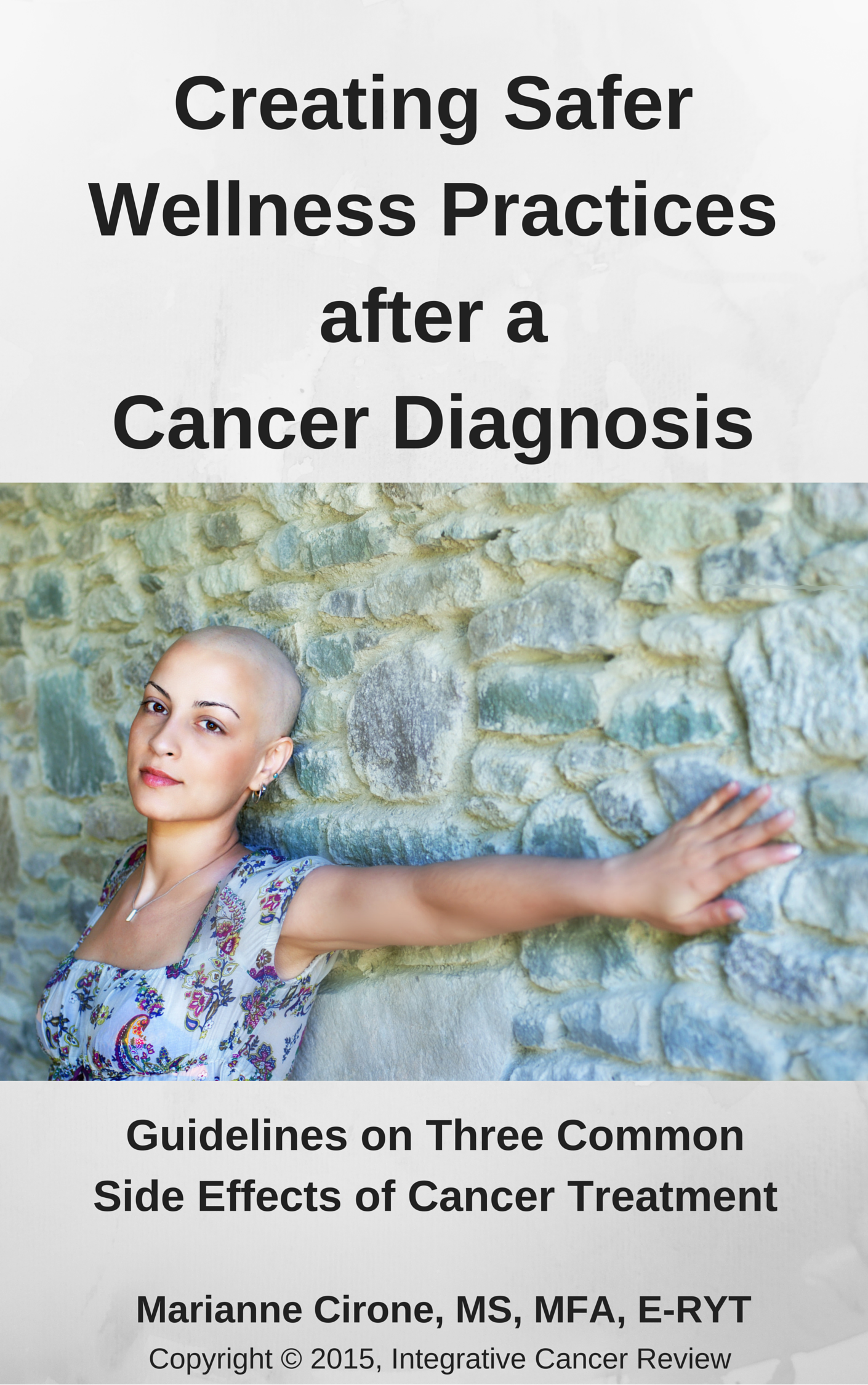
Nurturing Joy & Spirit after a Cancer Diagnosis
“I’m not happy that I got cancer, but I am happy that I’ve learned all that I learned through it. I am happier now than I have ever been.”
— Margaret, age 58, melanoma survivor
Getting a cancer diagnosis can be physically and psychologically devastating, from the fear, the treatments and side effects, the relationship and financial issues.
And yet, many of the happiest people I know are cancer survivors… many of whom are living with either a chronic form of the condition or with the imminent possibility of recurrence.
How is this possible?
Many of the modalities that comprise complementary or integrative cancer care, from nutrition and exercise, to massage, Reiki and meditation, have results that are scientifically proven to improve various measures of quality of life. Just practicing these profoundly beneficial modalities can improve how people feel, physically, psychologically or spiritually.
But whether or not people affected by cancer are practicing any or all these therapies, despite the many difficulties that come with a diagnosis, there can also be a sense of joy that people feel after going through such a transformative experience.
The Hero’s Journey
Whether we have gone through a cancer diagnosis or not, challenges in life can bring us to a “dark night of the soul,” a time in which we wrestle with our circumstances, and either succumb to them or change.
The mythologist Joseph Campbell popularized the concept of The Hero’s Journey — a sequence of steps that he saw represented throughout history. In Campbell’s synopsis, the journey starts in the hero’s Ordinary World, but things suddenly change with an unexpected problem known as the Call to Adventure.
Likewise, many times in our lives we get a “call” of some type that we must deal with. Campbell’s use of the term “Adventure” is more metaphorical — as the Call often feels less like an Adventure, and more like a curse.
Everyone who has gotten a cancer diagnosis will remember the moment that they first heard the news. Shock, anger, disbelief and questioning are all common reactions—and these fit with Campbell’s next step, defined as “Refusal of the Call.” Yet, many cancer survivors experience an inner transformation—whether or not a physical healing occurs.
Stephen Joseph, PhD, author of What Doesn’t Kill Us, states that studies show across studies of people who have gone through stressful events, between 30 and 70% of those report positive transformation in the form of renewed relationships, the courage to make changes, greater self-awareness and creativity, or the inspiration to “give back” and make a change in the world.
This transformation is known as post-traumatic growth. Studies show that people who have a healthy diurnal cortisol rhythm are more likely to experience post-traumatic growth, and these healthy rhythms may be supported by integrative lifestyle choices. (See Cancer and Cortisol levels for more information.)
Intentionally Living with Joy
Living with joy can be low on the priority list when the mundane stresses of life get us down. However, after a cancer diagnosis, living with joy can shoot to the top of the priority list, but we may need to brush up on that skill set. Simple practices can help support that intention to live a happier life.
- Bring your heart and spirit back into the picture if they have gotten trampled by life. Let go of things that you thought you need to find the things that you want.
- Take time to be quiet and to within. Notice what comes up for you, but don’t judge, just observe. Wisdom speaks quietly.
- Give yourself permission to take time with the “dark night of the soul” and don’t feel like you have to “be positive” or put a happy face on it. This is part of the journey that can’t be skipped over, but create a support system as well as time and space to go through this phase. All of life’s changes involve some type of grieving process, whether they are subtle or profound.
- Clarify what makes you happy. If you are making choices to please your parents, your spouse or your boss, re-evaluate. Bring yourself back into the equation. It can take time to excavate your true self after years or decades of denial.
- Give yourself permission to do the things that make you happy. A therapist or a support group can be great encouragers during this time.
- Set your intention to be happy. As you go through challenges and choices, gauge your reactions and decisions against your main intention to be happy or joyful and watch how your reactions and choices change.
- Seek happiness increasing activities… even if they have no other “productive” benefits. Seek out laughter yoga classes, go salsa dancing, watch funny movies, or sit at home and knit if that is what brings you joy.
Recommended Reading
Many people who have gone through challenges, with cancer or otherwise, have written books describing their journeys, and these can be a great source of inspiration.
Authors like Joy Huber and Britta Aragon, who were both young when they received a serious cancer diagnosis, have written books sharing their best secrets and tips on how to live a vibrantly joyful life after a cancer diagnosis.
Cancer with Joy: How to Transform Fear into Happiness and Find the Bright Side Effects by Joy Huber
When Cancer Hits: Your Complete Guide To Taking Care of YOU Through Treatment by Britta Aragon
Anne Marie Bennett is a two-time cancer survivor and creativity guru who runs the inspiring and creative website Kaleidosoul.com. She has written two highly rated books on the cancer journey:
Sunflower Spirit: 26 Simple Ways to Follow the Light of Self, Others & Spirit While Journeying with Cancer by Anne Marie Bennett
Bright Side of the Road: A Spiritual Journey through Breast Cancer by Anne Marie Bennett
See more on Joy & Spirit:
- Escape4Advocates Conference at Miraval Resort and Spa
- 2017 Breast Cancer Rehabilitation and Wellness Summit – FREE Access to 45 International Expert Speakers
- Depression after Cancer: My Experience by Jodi MacLeod
- Yoga Therapy Retreats Empower Patients after a Cancer Diagnosis, with Yoga Therapist and Cancer Survivor, Lee Majewski
- Healing Yoga Retreats after a Cancer Diagnosis: Part II with Lee Majewski, Yoga Therapist and Cancer Survivor
- Bill Aron on New Beginnings: The Triumphs of 120 Cancer Survivors
















